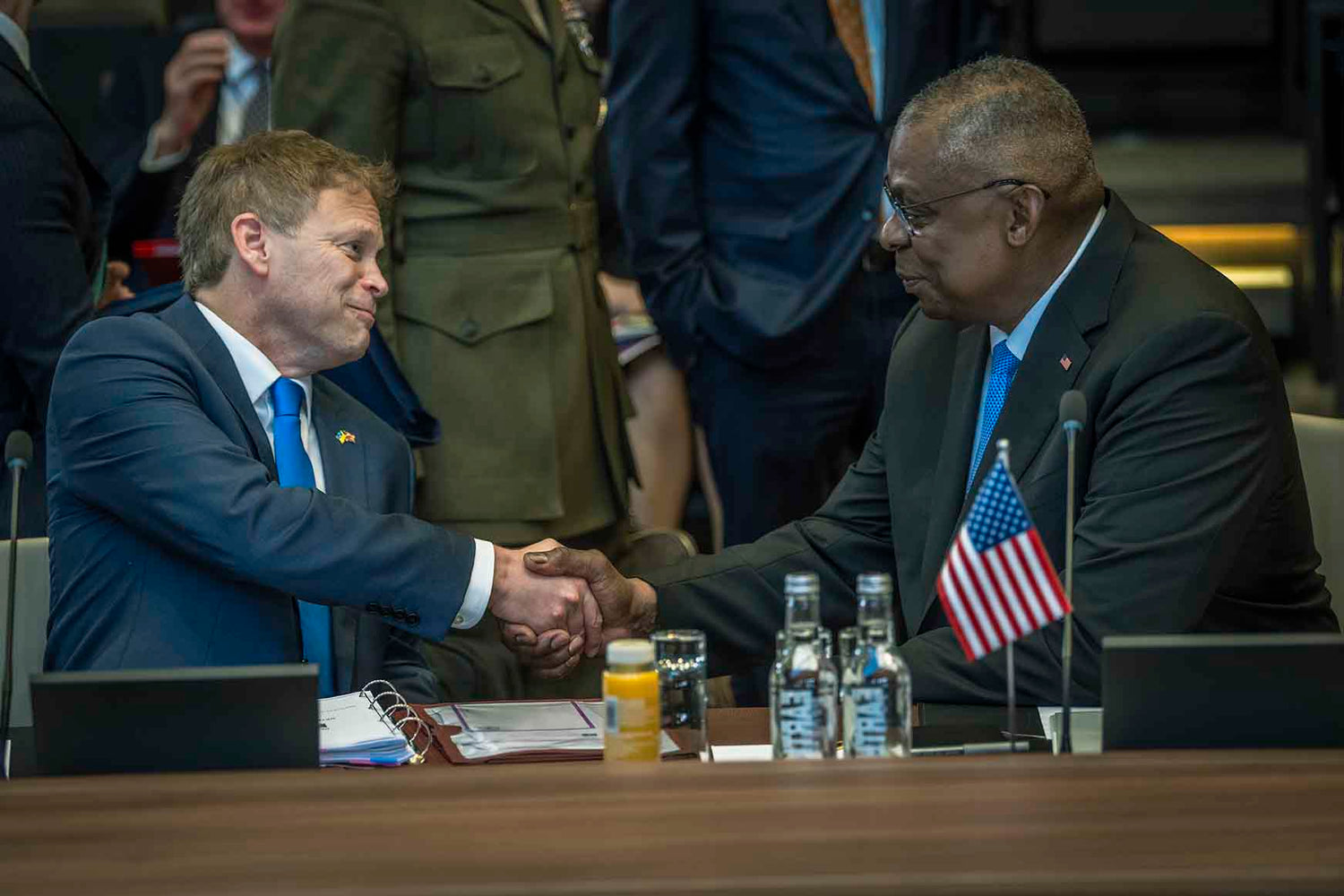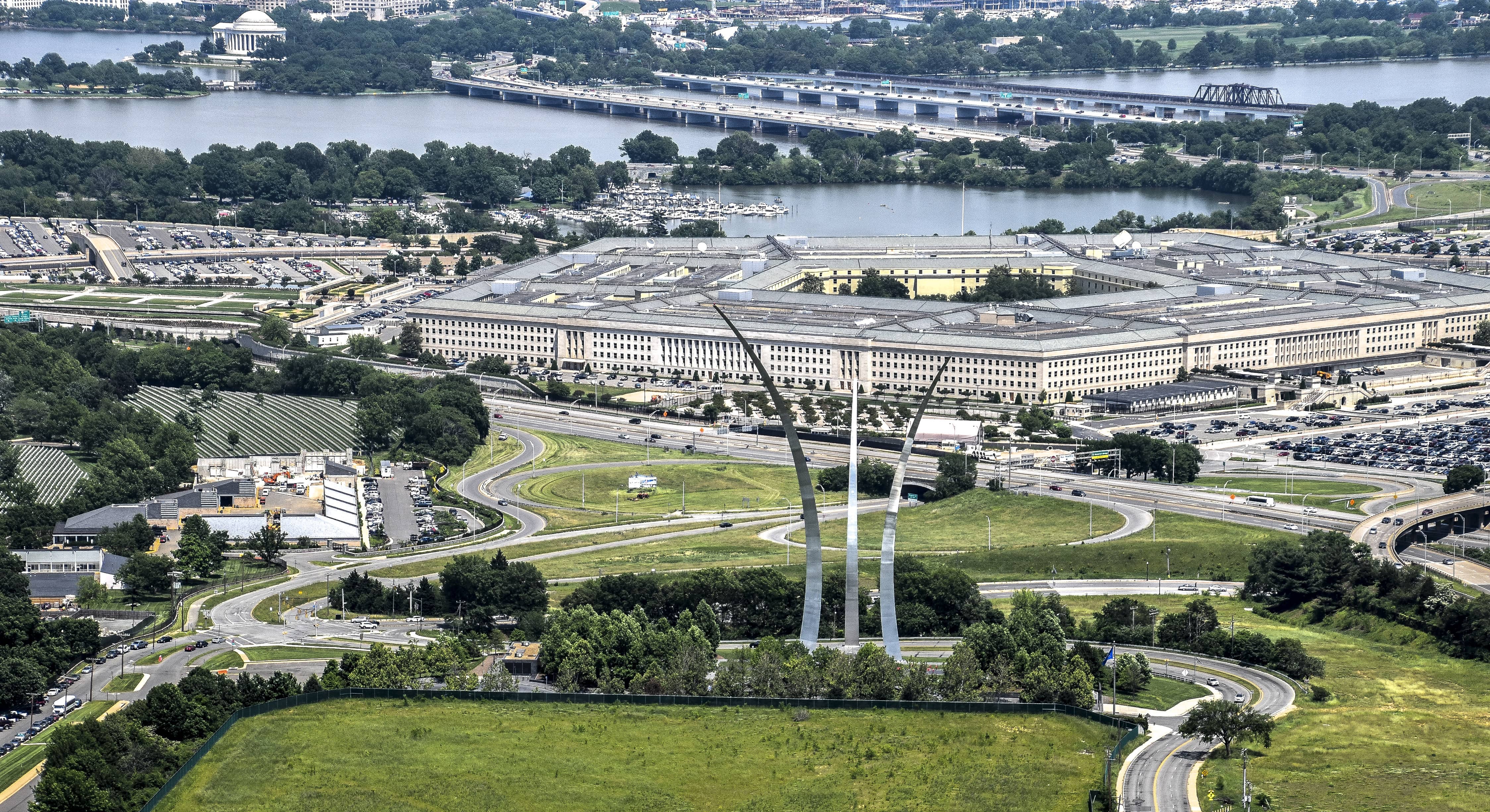Secretary of Defense Lloyd J. Austin III greets Secretary of State for Defence of the United Kingdom Grant Shapps at the NATO Defense Ministerial meetings at NATO headquarters in Brussels, Belgium, Oct. 12, 2023. (DoD photo by Chad J. McNeeley)
In a significant meeting that underscores the enduring strength of the U.S.-U.K. alliance, Secretary of Defense Lloyd J. Austin III and British Defense Secretary Grant Shapps convened at the Pentagon to discuss a myriad of pressing global security challenges. This gathering marks a pivotal moment as both nations reaffirm their commitment to upholding international peace and security amid escalating tensions in various regions worldwide.
The U.S.-U.K. partnership, long considered a cornerstone of international diplomacy and military cooperation, finds itself at the heart of efforts to navigate the complex geopolitical landscape shaped by crises in Israel and Gaza, aggressive actions by Iran-backed Houthi rebels in the Red Sea, and the continuing war in Ukraine instigated by Russia. Austin's statement that the "U.S.-U.K. special relationship is as strong as ever" not only reaffirms the historical ties between the two nations but also signals their unwavering resolve to collaboratively address these multifaceted challenges.
A critical focus of their discussions was the recent precision strikes against military targets in Houthi-controlled areas of Yemen. These operations, supported by Australia, Bahrain, Canada, and the Netherlands, were aimed at curbing the Houthi rebels' capacity to launch further assaults against international shipping lanes. The successful strikes reflect a concerted effort by the U.S. and U.K. to safeguard maritime navigation freedoms that are under threat from Houthi activities, underscored by Austin's condemnation of the "reckless and illegal attacks" facilitated by Iranian support to the Houthis.
Furthermore, Austin and Shapps delved into the ongoing conflict between Israel and Hamas, a situation that underscores the delicate balance of defending national security while ensuring the protection of civilian lives. Their unified stance—that Israel must defend itself against terrorism in compliance with international law, coupled with the imperative to minimize civilian casualties in Gaza and provide humanitarian assistance—highlights the complexity of responding to asymmetric warfare in densely populated regions.
The conversation also turned to the protracted conflict in Ukraine, with both leaders expressing their steadfast support for the country as it defends its sovereignty against Russian aggression. Austin's anticipation of discussions on bolstering Ukraine's defensive capabilities signifies a commitment to long-term support for Ukrainian resistance and resilience.
Looking ahead, Austin and Shapps previewed the central role of NATO in maintaining transatlantic security, a topic of paramount importance as the alliance approaches significant milestones, including a defense ministers' meeting and the 75th-anniversary summit. These gatherings will undoubtedly focus on reinforcing the alliance's unity and adapting its strategic posture to contemporary security challenges.
Tragically, the meeting also provided a moment to address the recent attacks in Jordan, which resulted in the loss of three U.S. service members and injuries to many others. Austin's expression of "anger and grief" and his assurance of accountability for those responsible reflect the personal and national toll of global security operations. It underscores the dangerous realities faced by military personnel deployed worldwide and the importance of a robust and coordinated international response to terrorism.
In conclusion, the meeting between Secretary Austin and Secretary Shapps at the Pentagon serves as a potent reminder of the critical role of the U.S.-U.K. alliance in navigating the increasingly complex global security environment. Their discussions covered a broad spectrum of security issues, from maritime security in the Red Sea to the enduring conflict in Ukraine and the delicate situation in Israel and Gaza. The collaboration between the U.S. and U.K., bolstered by support from other allies, is indicative of a collective determination to address global challenges, uphold international law, and ensure a secure and peaceful world order.
As these discussions unfold and actions are taken, the international community watches closely, hopeful that the steadfast commitment of these longstanding allies to peace, security, and the rule of law will lead to meaningful resolutions to some of the most pressing security challenges of our time. The road ahead is fraught with uncertainty and peril, but the U.S.-U.K. partnership stands as a beacon of cooperation and resolve in a tumultuous world.




